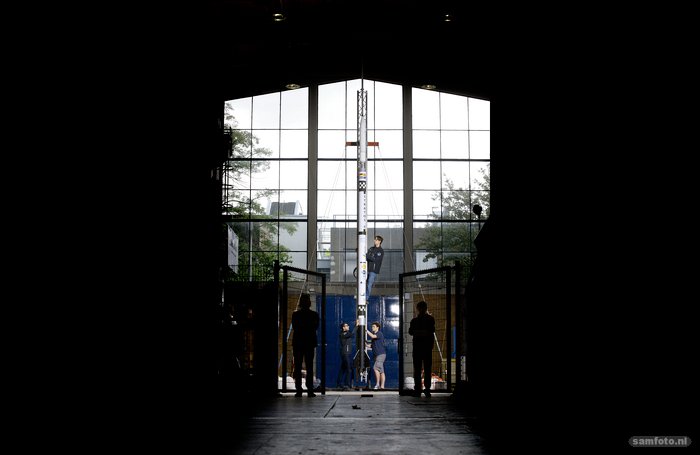New future for Delft Dream Teams
With the Nuna solar car, the Hyperloop and many other projects over the last 20 years, the TU Delft Dream Teams have proven to be an innovative way for students to learn. New requirements are now being developed to continue this.
In 1999, the DUT racing car and Nuna solar car laid the foundations for what the Dream Teams now stand for: innovative, multidisciplinary projects where students take responsibility from start to finish. Over the years, the number of teams has increased and is now 13. Students from many generations have been shaped by this innovative form of learning. TU Delft has won worldwide acclaim for these student teams, not least because of their success in numerous competitions.
D:Dream Hall
Almost all of the teams are based in the D:Dream Hall, the workshop behind the Faculty of Civil Engineering and Geosciences. Students usually work there night and day, developing even better versions of their projects: faster cars, more stable submarines, more usable exoskeletons. But things have been silent since the coronavirus outbreak. A perfect opportunity to review the current structure and to reshape the future, a process that was still very much a work in progress at the time of writing.
It is clear that there will be new qualification requirements to secure a place in the hall. This will be based on three criteria: safety, throughput and governance (the rights and duties of the student projects).
Safety
Why this new policy? Communication Director Joost Ravoo explains on behalf of the Dream Hall steering committee: “Take safety. Designing moving and racing objects always involves risks, as the NunaX that burnt out last summer shows. We don’t want to undermine teams’ autonomy, but as a university we do feel a certain degree of responsibility. Each year, every team recruits new members to improve the project and step up a gear. It’s never finished. A team doesn’t stop after having proved something fundamental.”
He cites Forze as an example. This year, the high-tech hydrogen racing team’s car was the first hydrogen-electric vehicle ever to beat petrol-powered cars to a podium place in an official race. “The team proved that it’s possible! But what is the goal for next year? To go even faster? Or is there something else to be proved? ”This is why the steering committee wants to examine the finiteness of projects: when has a project passed the radical innovation stage and ‘done’ with the Dream Hall?”
Wider focus
The steering committee would also like to see the return to the hall of broader societal themes, in which TU Delft aims to make an impact with its science and education. Ravoo: “Traditionally, the Dream Hall has relied heavily on 3mE projects, with a mechanical focus. That could be widened.”
Possibly, not all of the teams will return to the Dream Hall when it reopens, but that does not mean that the teams will then stop immediately. The Vattenfall Solar Team (Nuna)has opted to continue its development elsewhere, for example.
The steering committee is talking with the Dream Teams and various internal and external stakeholders. There will be a new policy later this year enabling the first cohort in September 2021 to apply the new concept from the outset.
